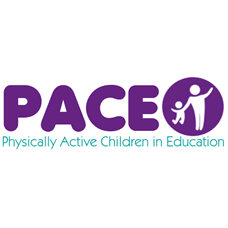- LIVE LIFE WELL
- PHYSICAL ACTIVITY
- NUTRITION
- CANTEENS
- CRUNCH&SIP®
- SWAP IT
- NEWSLETTERS
- KINDER ORIENTATION
Physically Active Children in Education
What is PACE?
An award-winning, evidence-based program that supports schools to implement physical activity for all children across the school week. The PACE program is free to all and includes training, resources, equipment and ongoing support from a health promotion officer to increase the physical activity levels of all students at your school.
Why is PACE needed?
There are many benefits in improving physical activity patterns among youth including:
- Academic- increased concentration, memory, attention and performance
- Physical- improved fitness, bone density, muscle tone and healthy weight
- Mental- superior psychological well-being, sleep, mood, lower anxiety and depression
- Social- enhanced opportunities for self-expression, self-confidence and social interaction
What are the PACE program components?
Schools are supported to schedule physical activity across the school week.
Physical activity includes:
- Active physical education lessons
- Active sport
- Daily energisers
- Cross curricular links/integrated PA lessons
What is an ENERGISER?
Energisers are quick simple physical activities/games that encourage students to get up and move. Engaging in energisers throughout the school day can improve children's:

For Schools

School support strategies include:
- Your local Health Promotion Officer
- Free staff development and training
- Free resources
How do teachers and schools get involved?
- Sign up on the online PACE portal
-
Start by completing the online PACE modules. These modules are NESA accredited:
Completing Physically Active Children in Education (PACE) Online self-paced training will contribute 3 hours of NSW Education Standards Authority (NESA) Accredited PD in the priority area of Student/child Mental health addressing standard descriptor 1.2.2 from the Australian Professional Standards for Teachers towards maintaining Proficient Teacher Accreditation in NSW.
-
Develop a whole school physical activity policy and update all classroom timetables to show 150mins of physical activity across the school week.
-
Identify, plan and implement actions appropriate to your school's needs to advocate for the successful implementation of PACE in your school!
- Become an ENERGISER SCHOOL!
The Research
Why PACE works!
Implementing the Physically Active Children in Education (PACE) program optimally and sustainably
Read more about our award-winning program and the research at:
Optimising Implementation - National Centre of Implementation Science (ncois.org.au)
In four initial studies, our researchers found PACE to be effective, feasible and scalable across multiple local health districts spanning metro, regional, rural and very remote areas. Teachers rated the program highly acceptable, and we saw an increase in teachers’ scheduling of total physical activity across the school week by approximately 27 minutes. This included an increase in the scheduling of energisers by 21 minutes and active lessons by 5 minutes.
